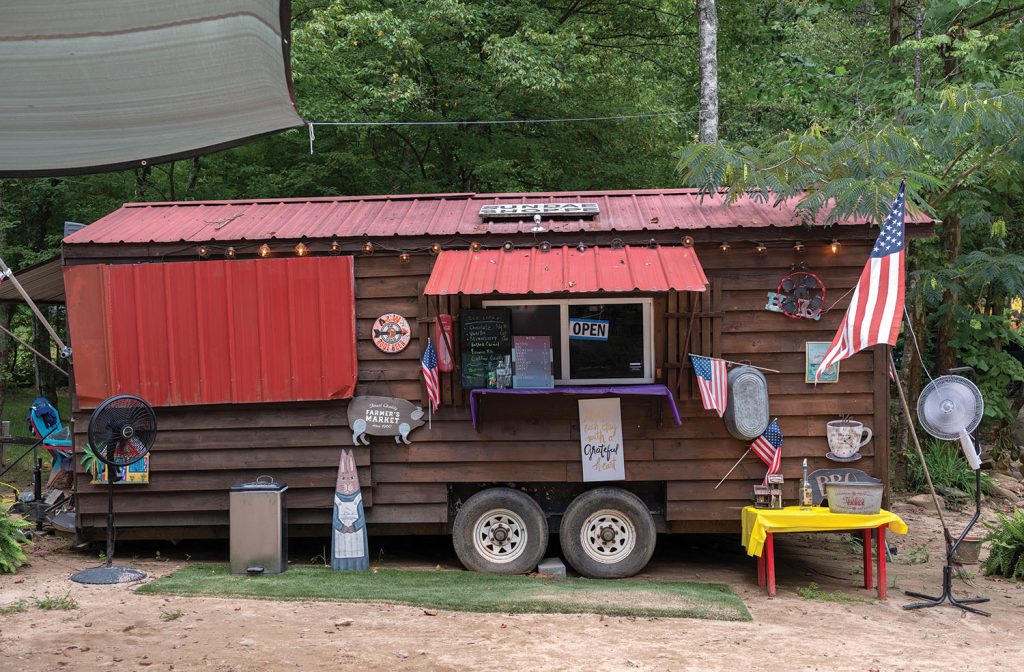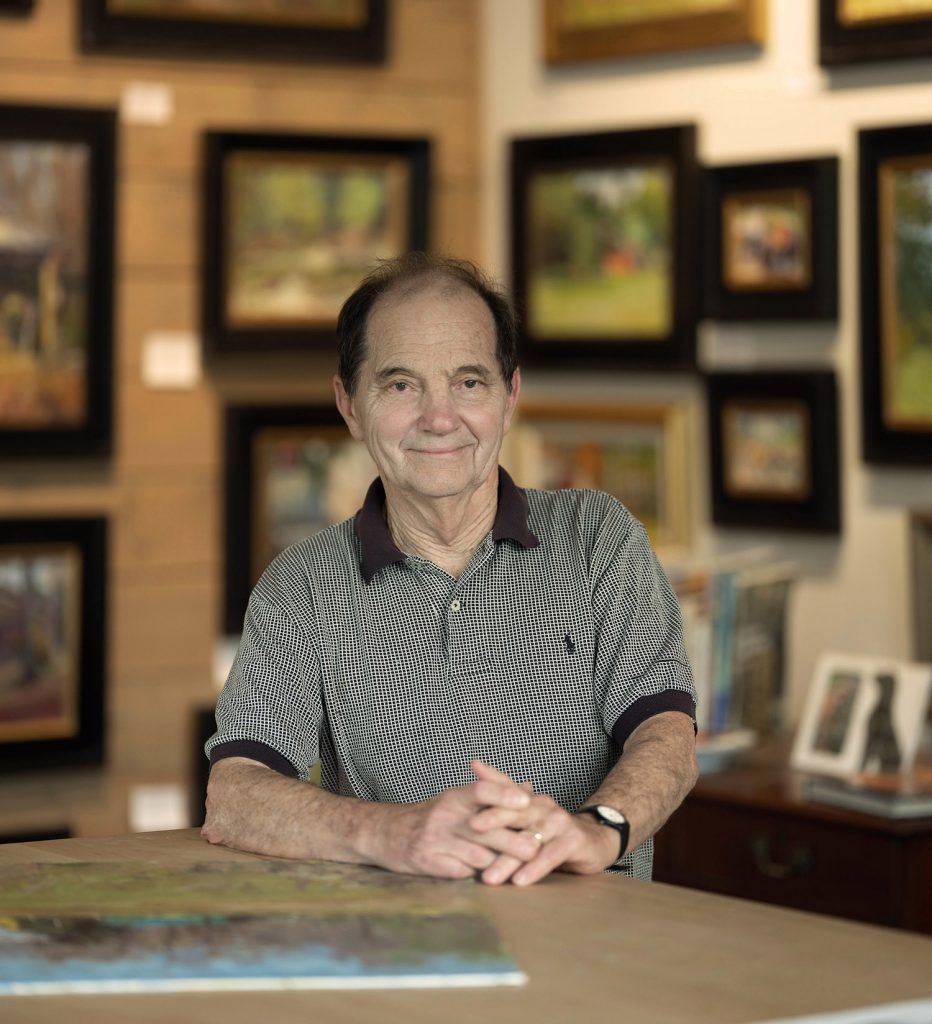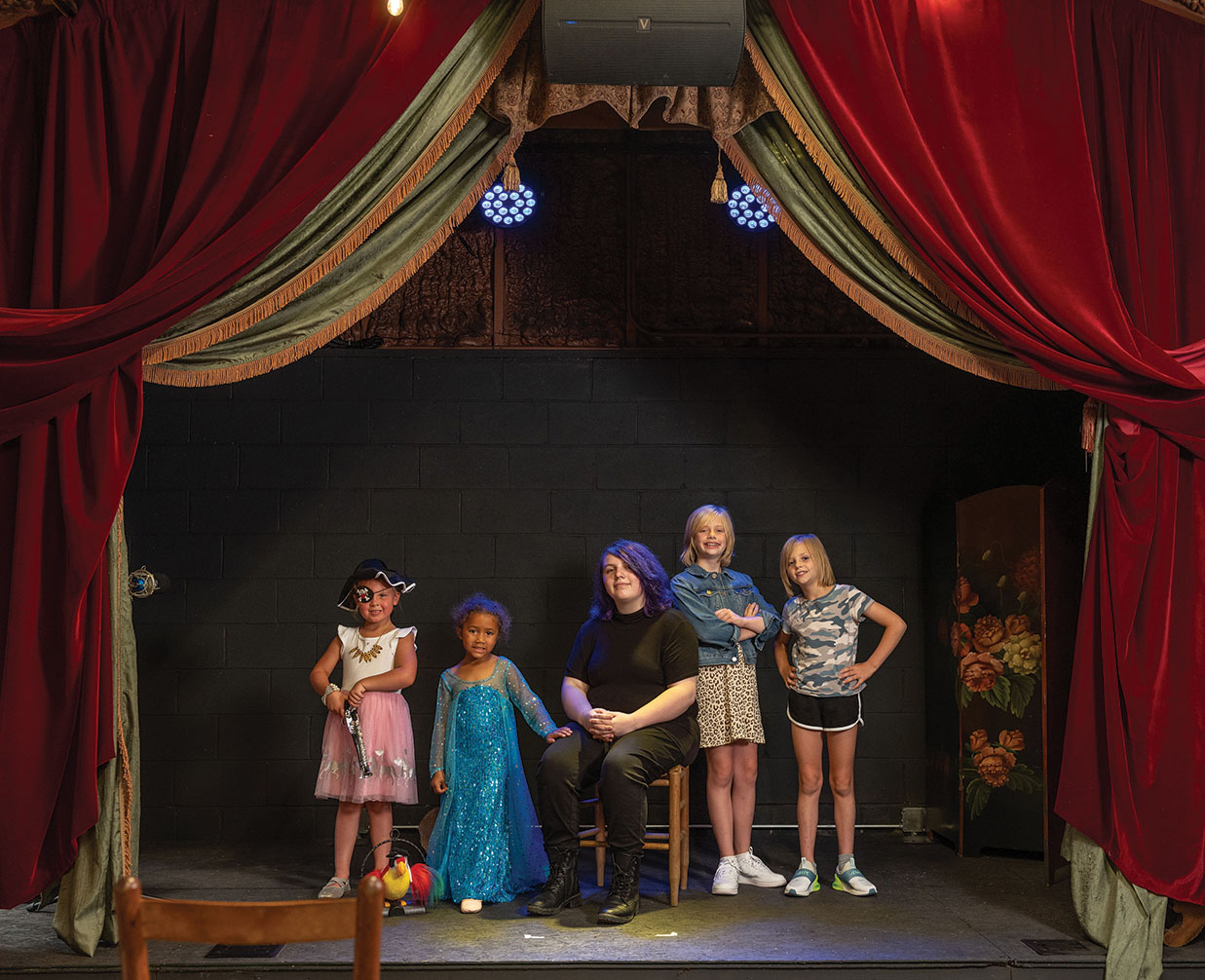
Square dancing off Main Street. Vintage photos used courtesy of the Historic Saluda Committee.
To gather facts and anecdotes for the wide-scale documentary Going Home: Saluda’s Music Traditions — it covers various genres from the mid-1700s through today — the Historic Saluda Committee enlisted the help of the Polk County Film Initiative. From oral histories gathered over a five-year period come recollections of old-time square dances; the sound of shape-note singers, both past and present; demonstrations by instrument-making craftsmen; and impressions left by ballad-singing troubadours, smooth baritone crooners, and jittery ragtime pianists.
African-Americans may not play prominently within the popular understanding of traditional mountain music, but they were, in fact, vibrant contributors — especially in Saluda. Thanks to the famously steep railroad that characterizes the foothills town, an early-20th-century influx of newcomers enlivened the demographic.
“There were a lot of social and cultural differences with those arriving with the train,” explains Cindy Tuttle, a member of the HSC. “The African-American population swelled when many moved into the region seeking jobs working for the railroad, or working for the tourists and second-home owners [also new to the area].” This led to the growth of African-American churches, including St. Matthews Church and the Sullivan Temple Church. “Rich gospel-singing traditions once thrived here, especially in the 1940s and ’50s,” says Tuttle. “Stories reveal many wonderful musical celebrations and ‘dinners on the ground’ at these churches” — which brought in the likes of celebrities such as Mahalia Jackson.
On June 4, HSC will celebrate the town’s diverse musical heritage with a premiere of the documentary. “That history is told [on screen] by Pearlie Mae Suber Harris, whose father, Reverend Lester Suber, led Baptist congregations in song both in Saluda and in other towns around WNC,” says Tuttle.
The film runs rich with homestyle narrative, including the memorable story of fiddler William “Billy” Morris, keeper of the “century-old fire.” Morris was the last of his lineage to tend his family’s home fire, after those embers burned continuously for 164 years. He didn’t just fiddle with the kindling, either, but was also known for keeping his instrument constantly by his side, always ready to break out an old-timey tune. The music of Adger Pace, who penned more than 3,500 gospel songs and was inducted into the Southern Gospel Music Association Hall of Fame, is also showcased in the film. Although Pace wasn’t a town native, he spent almost every summer in Saluda, teaching others to sing.
“People come and go,” the film’s narrator intones. “Traditions come and go, and your hometown changes … but sometimes, a small town, tucked in the mountains and removed from the faster pace of change, can manage to maintain some of its original character over time.”
Going Home: Saluda’s Music Traditions will show at 7pm at The Party Place and Event Center (221 Friendship Church Road). Free. See historicsaluda.org for more info.



